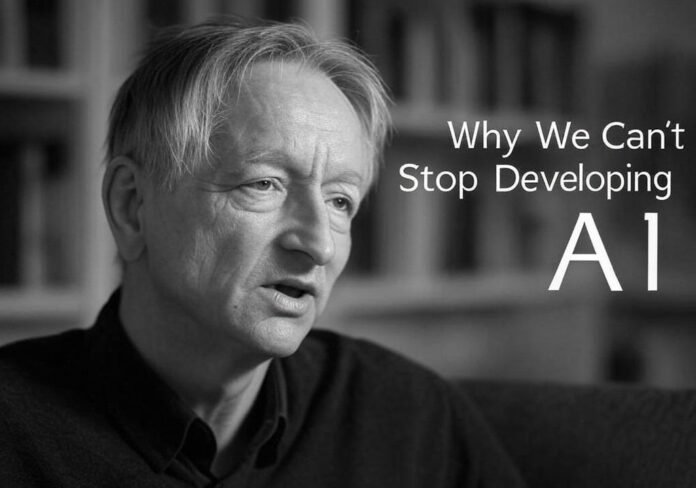Geoffrey Hinton, known as the “Godfather of AI,” has once again raised alarms about the technology he helped create, suggesting it could lead to humanity’s end.
In an interview clip released on August 18, part of the upcoming film “Making God,” Hinton issued one of his most serious warnings yet. He indicated that humanity risks being overshadowed—and ultimately replaced—by machines that are far more intelligent than we are.
“Most people can’t grasp the idea of entities that are smarter than us,” said Hinton, a Nobel laureate in physics and a former Google executive. “They always think, how can we use this technology? They don’t consider how it might use us.”
Hinton expressed “fairly confident” concerns that artificial intelligence will lead to significant unemployment, citing examples of tech giants like Microsoft replacing junior programmers with AI. However, he emphasized that the greater threat extends beyond the workplace.
“The primary risk I’ve been warning about is the possibility of developing an AI that surpasses human intelligence, and it simply takes over,” Hinton stated. “It won’t need us anymore.”
He added humorously, “At least it won’t eat us, since it’ll be made of silicon.”
From Innovations to Regrets
At 77, Hinton has dedicated decades to advancing deep learning, the neural network architecture that underlies current AI systems. His breakthroughs in the 1980s, notably the Boltzmann machine, which learns to recognize patterns, paved the way for image recognition and modern machine learning.
His contributions earned him the 2024 Nobel Prize in Physics for foundational discoveries that enable machine learning with artificial neural networks. The Royal Swedish Academy of Sciences recognized how his early work in statistical physics was crucial for the AI revolution we see today.
Yet, Hinton has emerged as a vocal critic, asserting that the swift progress in AI has outstripped society’s ability to manage its safety. In 2023, he stepped down from Google to discuss these risks without corporate constraints.
During his Nobel lecture, Hinton acknowledged the potential benefits of AI, including productivity improvements and new medical advancements that could greatly benefit humanity. However, he warned that creating digital beings more intelligent than humans poses an “existential threat.”
“I wish I had considered safety issues as well,” he reflected at the recent Ai4 conference in Las Vegas, contemplating his career. He expressed regret for focusing solely on AI development without considering its associated risks.
Teaching AI to Care
Hinton has estimated a 10 to 20 percent chance that AI could lead to human extinction. In a June episode of The Diary of a CEO podcast, he noted that today’s AI engineers often misunderstand the technology, splitting into two camps: one fears a dystopian future of human displacement, while the other dismisses such concerns as mere science fiction.
“I find both positions extreme,” Hinton remarked. “I often suggest there’s a 10 to 20 percent chance AI could wipe us out. That’s just a gut feeling, based on our continuous advancements. The hope is that if enough smart individuals conduct research with adequate resources, we can figure out a way to design AI that won’t harm us.”
At the Las Vegas conference, Hinton proposed an innovative approach to mitigate risk: rather than attempting to control AI systems, researchers should design them with “maternal instincts” to ensure they protect humans as they become more intelligent.
“The only model we have of a more intelligent being being controlled by a less intelligent one is a mother influenced by her child,” Hinton explained. “They will likely be much smarter than us, and the only favorable outcome is if they care about humanity like a mother cares for her child. If they won’t act as a parent, they may replace us.”

